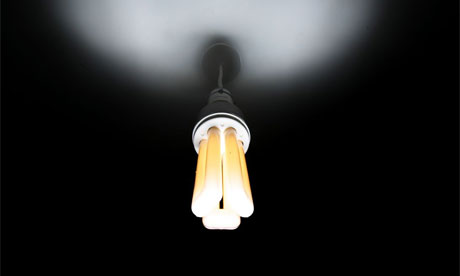Over 125 countries will take part in Earth Hour. But how can the collective switch-off really make a difference?

Thousands of people participating in Earth Hour will switch of their lights. Photograph: Graham Turner
It'll look impressive, no doubt. The big switch-off will make the news. But so what? We know that just one hour, even on this global scale, won't in itself save energy or reduce emissions in any significant way. This is a giant photo opportunity – eye-catching and symbolic, yes – but how can it really make a difference? More importantly, why would a science-based organisation like WWF believe this is worth the effort?
I think there are many reasons, but there are three worth focusing on.
Firstly, climate change is a threat truly global in its nature. It demands global attention, commitment and action. In December last year, as the climate talks in Copenhagen came to a stuttering finish, many in the UK felt disappointed and disillusioned. But talking to my colleagues working in areas of the world already feeling the effects of climate change, emotions ran much higher. Anger and disbelief best describes what nations like the Maldives, Bangladesh and Tanzania felt on seeing the failure of world leaders to take collective responsibility. They are seeing the effects of climate change now. It is, for countries in their position, no theory for debate or distant possibility.
As I write, more than 125 countries have confirmed their participation in Earth Hour, almost 40 more than in 2009, including 56 national capitals and eight of the 10 most populated metropolises on the planet. "Earth Hour" has appeared more than 30m times online in the past 24 hours and is currently one of the top 10 trending topics on Twitter. While the UK and the US (two major global emitters) may have seen an increase in sceptical noise on climate change in recent months, I feel confident that globally, this is no waning movement.
Secondly, politicians here in the UK need a mandate to act. Unlike elsewhere in the world, our main political parties all understand the threat of climate change and say that they are committed, albeit with different policies and approaches, to dealing with the problem. However, Copenhagen largely failed and leaders need us, the voters, to keep up a demand for action.
This close to a general election, there's no better time to make a big, bold, collective statement that as a public, we expect leadership from our next government, whatever its hue. Schools, cathedrals, large companies, small businesses, pubs, clubs, councils all add up to a pretty comprehensive slice of our population and just this week, under pressure from Earth Hour participants, supporters and many committed MPs, the Palace of Westminster and 10 Downing Street joined the Senedd in Cardiff and the Scottish parliament in Holyrood and signed up to switch off. In the US, 31 state governors are supporting Earth Hour. The people who matter do notice.
Lastly, Earth Hour is for me a brilliant analogy for how we can get to a solution. Climate change will demand big, global ambition from world leaders – the "landmarks" of our political landscape. Just as lights go off at Christ the Redeemer, the Empire State Building and the Forbidden City, we need Presidents Lula da Silva, Obama and Hu Jintao and many others to work together in order to get a binding commitment to reduce emissions.
A low-carbon future will demand small changes from all of us at home, like the families taking part in Earth Hour, perhaps eating their dinner by candlelight. Better insulation, more efficient heating, using public transport and the products we choose to consume can all have impact on the energy we use and reduce our personal impact on our environment.
Earth Hour is not about a world without light, power and the great human achievements that keep us warm and safe. It is absolutely a celebration of their positive role; we want a bright future in which the lights stay on, drawing on forms of energy and innovative technologies that have a lesser impact on people and nature around the world. As the 10:10 campaign has shown alongside Earth Hour, collective action can have an impact.
We know that a single hour, once a year is not enough. But also we know that there is no greater, global call to action available at the flick of a switch. We firmly believe Earth hour is worth it.
• David Nussbaum is CEO of WWF-UK

Nenhum comentário:
Postar um comentário
Deixe seu comentário... o Planeta agradece!!!